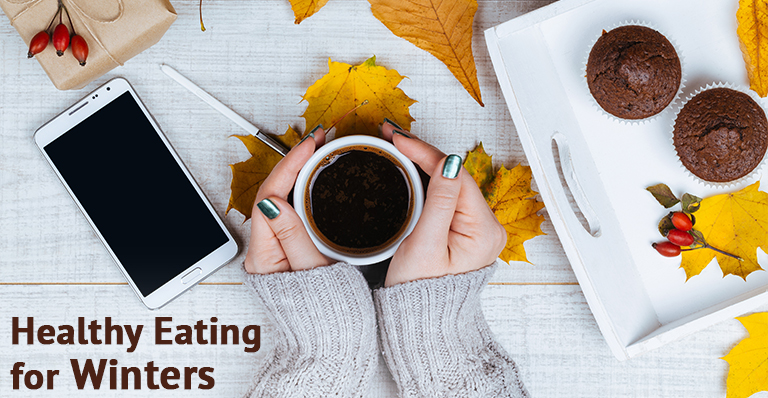Contributed by – Healthians Team
When someone mentions winter, what is the first thing that comes to your mind?
Gajar ka halwa, cream-rolls, hot coffee, a slice of Christmas rum cake and stuffed paranthas. Have you ever noticed that the urge to eat increases during winters?
Do not worry! The good news is that we tend to burn more calories during winters to generate the extra heat, which in turn increases our appetite. Amazingly, the body engine works better during winters and foods get digested better and faster. So, during these cold winter days and nights, we can fondly think about our favorite foods without feeling guilty.
On the other hand, there is also a downside. Our metabolism slows down, our energy levels are a little lower and we are fonder of sleep. So, this is also the time to convince yourself to go on a calorie splurge not just to warm up but to fuel our body with the extra energy it needs. The most common food mistake we make during winter is grabbing high-fat, high sugar and high-carb foods which are not favorable for our over-all health. Many spicy, sugary, and dairy-heavy foods can be the contributing factors to the illnesses which are more susceptible during winters like cold and flu.
Listed here are the top food items we should avoid during this chilly season. The aim is to gain health and energy, not weight, medical and food bills. Tips to create healthier versions are also mentioned.
Top food items to avoid during Winters
Milk products
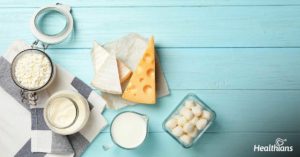
During winters, we are more susceptible to colds so it is best to reduce dairy intake. Milk and milk products like cheese, butter and curd can cause an increase in congestion in the nose, throat and chest and hence breathing and swallowing our food becomes more difficult.
Tip – Curd should be made with low-fat milk and served at room temperature. Avoid cream. Alternatively, choose vegetable broth or homemade soups or sauces which do not contain any preservatives or artificial taste enhancers.
Fried sides
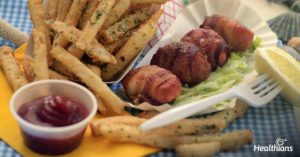
The most lip-smacking and desired snacks like french fries, chips, pakoras, samosas contain the unhealthiest fat i.e. trans-fats and are often loaded with calories which put us at a higher risk of obesity, hypertension and heart disease. Avoid oily junk foods to get rid of extra kilos while maintaining a slim waistline.
Tip- Switch to baking, grilling, steaming or sauteing to stay trimmer and healthier. Bake fish and potatoes in the oven, serve with a side salad dashed with fresh lemon and herbs.
Tea and coffee

Cozy chit-chats or gossips are not fun enough without tea and coffee. But both contain caffeine which is a diuretic that dehydrates our body. Avoid caffeine, drink soups, broth or water instead. It is important to stay hydrated during winters.
Tip– Drink substitutes like herbal tea, green tea or use low fat milk. You can also add cloves, black pepper, elaichi, cinnamon, ginger or tulsi leaves in moderation.
Baked goods
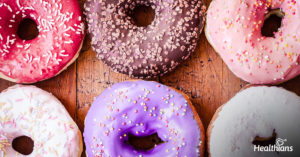
Warm baked goods melt in our mouth on a cold day and are hard to resist. These delightful snacks are packed with trans-fat which is bad for our heart health.
Tip- Start baking at home with a healthier version of oil or choose low or no fat desserts like fruit or sorbet instead.
Cream-based soups
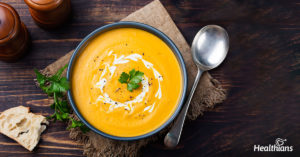
Nothing is better than a nice bowl of soup on a cold winter day which also acts as appetizers. Cream-based soup should be avoided as they contain high cornstarch content which is high in both salt and fat.
Tip– Opt for vegetable broth, clear soups, minestrone or chicken broth-based soups or water as the base and include loads of veggies like tomato, basil.
Refined flour
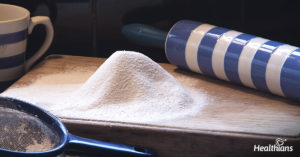
Refined flour is made by stripping wheat and contains synthetic B vitamins and is toxic for our body. Stripping of the fiber causes blockages in the large intestine. Avoid food prepared from refined flour.
Tip- Choose an alternative such as multigrain or a whole wheat or almond meal.
Refined sugars or white sugar
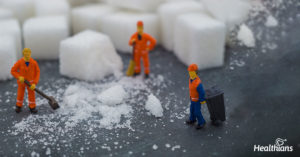
Refined sugar is found in carbonated beverages or drinks, chocolates, wine or beer and is also added to bread or breakfast cereals and other supermarket products. It is a highly refined chemical product which can weaken our immune system and makes us deficient of some important nutrients.
Tip- Many low-fat products are high in sugar. Always read the food labels on packaged items to make better choices. The best alternatives for your sweet tooth are maple syrup, jaggery, stevia or honey.
Apart from all the above-mentioned do’s and don’ts of healthy winter eating, always choose local. It is very tempting to stock our kitchen with bright, colorful fruits and vegetables during these cold winter months. But do this with a word of caution! Avoid those fruits and vegetables that have been shipped to reach your kitchen. They are low in nutrition, natural sugars and flavor. Rather consume seasonal, local food, to get the best flavor, more nutrition and better health, all this and more at prices that keeps your pockets smiling.

